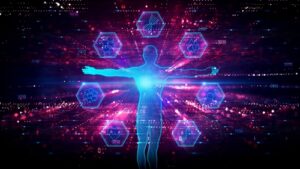Metabolomics: The Picture of Fatherhood
 Call me a nerd, but I have to admit that I am pretty excited about metabolomic technology. Uh, what? Metabolomics is the study of the chemical fingerprints that cells leave behind. It does not look at genes, DNA, RNA, or proteins, but is a peek into the products or metabolites that result from all this genetic orchestration. It is a “physiological snapshot” of a living cell.
Call me a nerd, but I have to admit that I am pretty excited about metabolomic technology. Uh, what? Metabolomics is the study of the chemical fingerprints that cells leave behind. It does not look at genes, DNA, RNA, or proteins, but is a peek into the products or metabolites that result from all this genetic orchestration. It is a “physiological snapshot” of a living cell.
This past week, we published a study that applies metabolomics to male infertility. If you have been reading this blog, you are well aware of my interest in helping sterile men become fathers. Over the last decade, it has become clear that many men with azoospermia (no ejaculated sperm) may have small pockets of sperm in the testicle. The question is how to safely find that sperm without causing undo harm to the testicle. Current methods for evaluating whether sperm are present include somewhat invasive techniques such as testicular biopsy and microdissection and less invasive ones such as FNA Sperm Mapping,™ which I invented 13 years ago. However, as I always say, there is always room for improvement.
Wouldn’t it be nice to find the “pockets” of sperm in the testis through a simple scan and avoid a biopsy? Maybe even a scan that involves no radiation exposure, like an MRI? Well, that is precisely what we have developed in this study.
We showed that magnetic resonance (MR) spectroscopy can measure metabolic activity in the testis. And given that most metabolic activity in the testis is concentrated on building sperm (remember, normally men produce 1200 sperm/heartbeat!), metabolic measurements in the testis generally reflect sperm production. The study showed that the metabolomic scanning is as accurate as a more invasive testis biopsy in reading several abnormal patterns of sperm production typically associated with infertility. It also showed that testes that contain sperm carry a distinct chemical “signature” that can be distinguished by MR Spectroscopy.
How does it work? Essentially, the scan looks for chemicals in the testis that are the building blocks for sperm production. The theory is that if you see a pile of bricks in the yard, then there is a good chance that a house is being built. In the study, phosphocholine was observed as one of the building-block chemicals in the testis. The more there is, the more likely sperm is present.
Not only that, but MR Spectroscopy can evaluate for sperm in as many as 100-200 areas within the testis, significantly increasing the ability to sample for sperm well beyond any of the more invasive techniques commonly used today.
Are we ready to replace a testis biopsy with an MRI scan? Not yet, but give me some time to tweak the system a bit and perform clinical trials comparing it to current approaches. My motivation runs deep, as I know that men would rather have their picture taken than have a surgical procedure to understand whether they can be fathers.
2024 Update
It’s fun to look back at old blogs and see how far science has progressed. What’s new in metabolomics? We’re not just looking under a microscope anymore; we’re now looking through a metabolic lens at male fertility. Imagine every molecule whispering secrets about sperm health and vitality. Recent studies are now showing how metabolic profiling can reveal hidden tales of oxidative stress and energy swings in sperm, giving us clues about their ability to start a pregnancy. It’s like having a metabolic diary of sperm health and activity.
Just as metabolomics has made great headway in science, along comes another potent technology: AI imaging analysis.! AI technology can sift through mountains of data of all kinds, hopefully helping us to find any sperm where there was none before or finding the best sperm among many. This technologically combination should prove to be a serious advance in our ability to make biodads where we couldn’t before.
To learn more about the latest advancements in male fertility care, schedule an appointment at the Turek Clinic. Call 1-888-TUREKMD.









